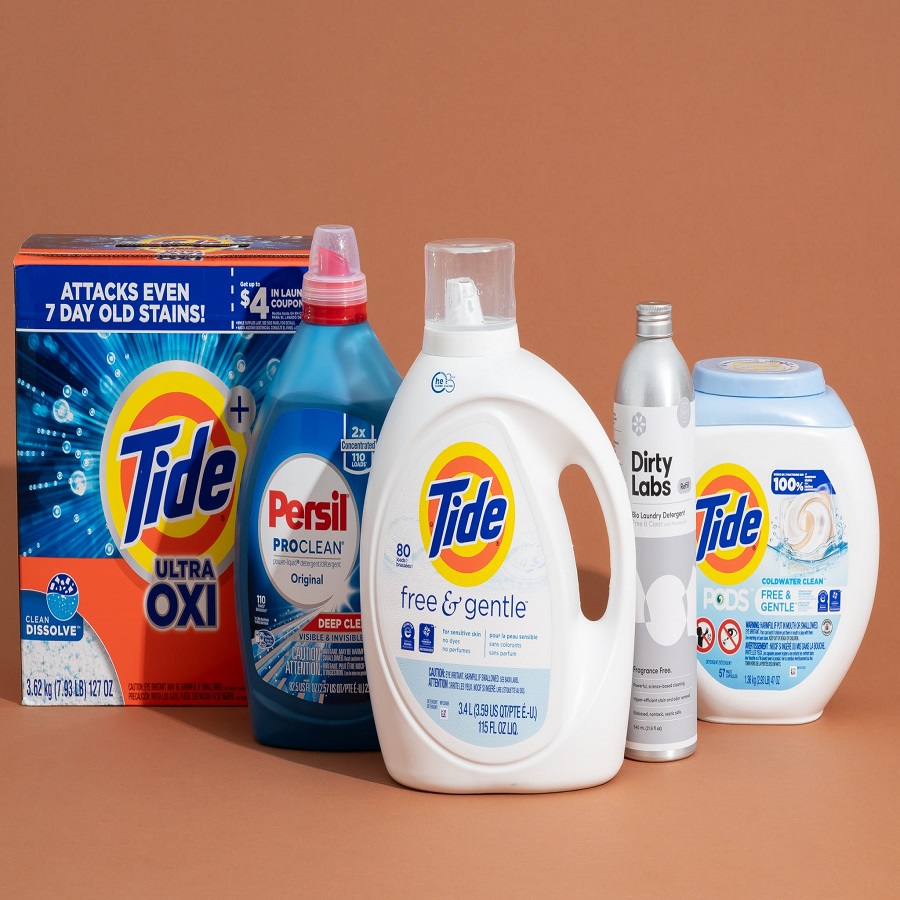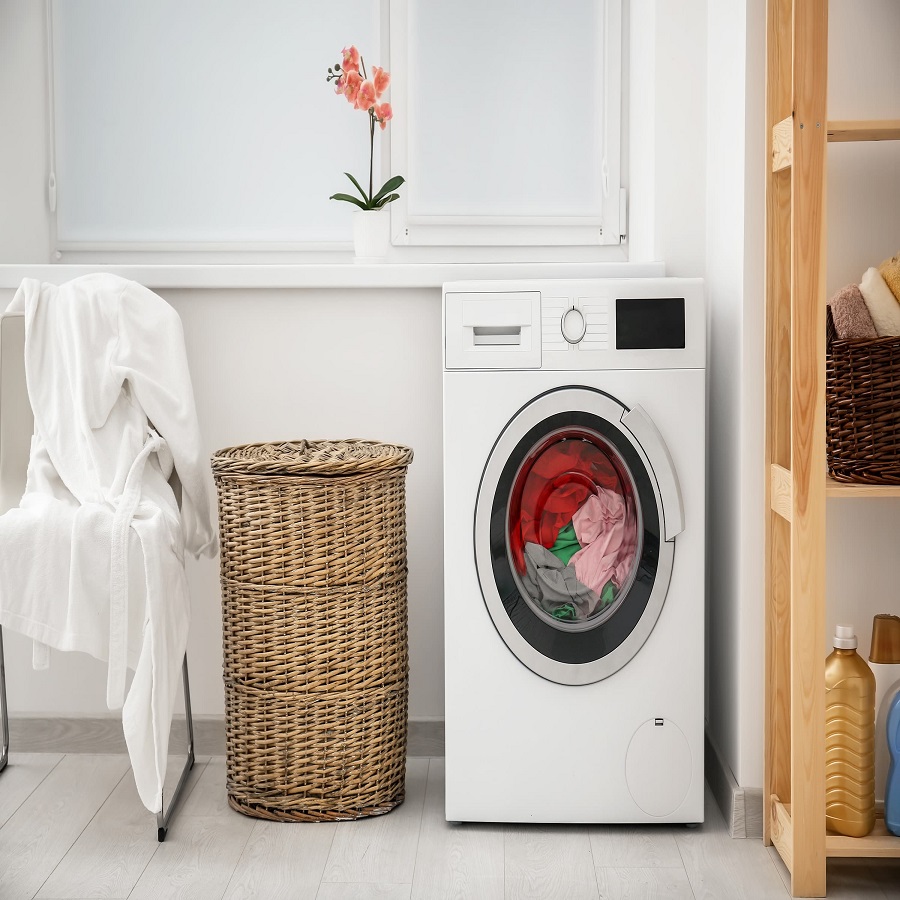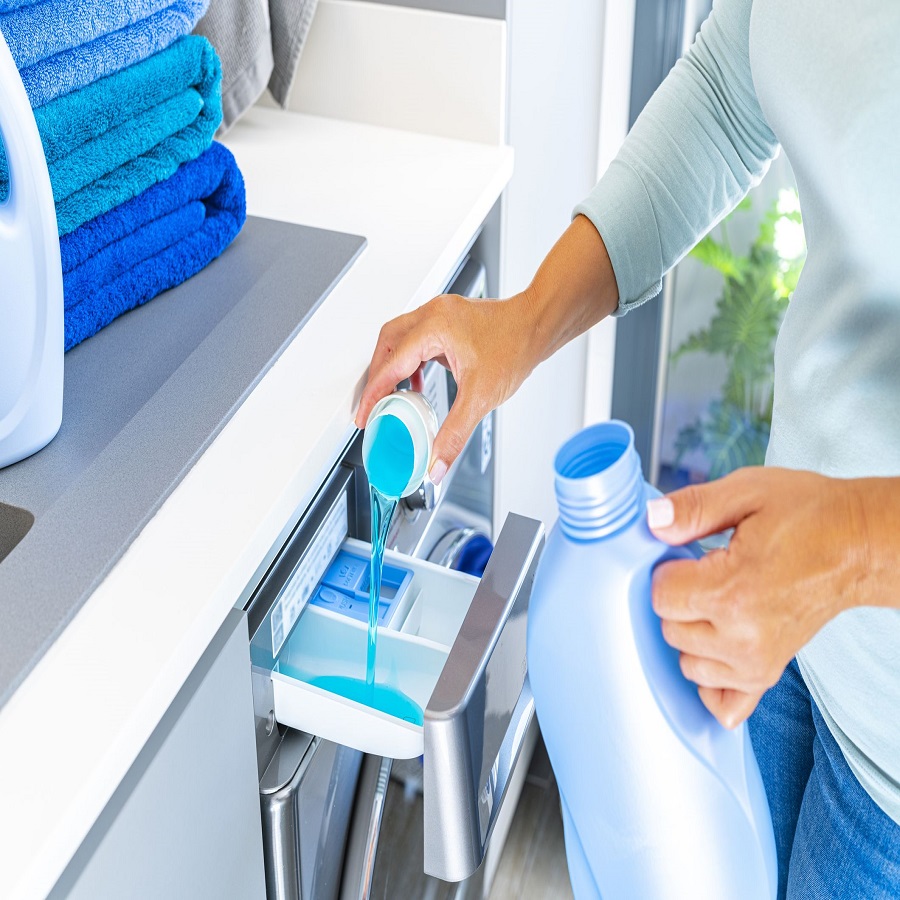The Need for Laundry Detergent Substitutes
During certain times, you may find yourself asking, “What to use in place of laundry detergent?”. Whether you’ve run out of your regular detergent, or you’re looking for a cost-effective alternative, there are various reasons to consider substitutes for laundry detergents. One key factor is the ever-increasing price of traditional detergents, which has many seeking more budget-friendly options to keep clothes clean and fresh. Another important reason is the concern for the environment; conventional detergents may contain chemicals that aren’t eco-friendly. In addition to this, those with sensitive skin often look for milder alternatives that are less likely to cause irritation.
By exploring different items that can act as a detergent substitute, you can save money, reduce your environmental impact, and potentially find an option better suited for those with sensitive skin. In the upcoming sections, we’ll look into several everyday household products like baking soda, white vinegar, and lemon juice that serve as efficient laundry detergent alternatives. Each of these can provide a safe and effective way to manage your laundry needs without the use of traditional soaps.
 Baking Soda: A Natural Cleaning Agent
Baking Soda: A Natural Cleaning Agent
When considering what to use in place of laundry detergent, baking soda stands out as a stellar option. Known for its natural cleaning abilities, baking soda easily tackles dirt and odors in your laundry. It’s a mild alkali, which means it dissolves dirt and grease in water effortlessly. This makes it particularly useful for handling tough stains on clothes. Simply adding half a cup to your usual laundry cycle can enhance cleaning and leave your clothes smelling fresher.
Baking soda is also gentle on the skin, which is great news for individuals with sensitive skin. It does not contain the fragrances and chemicals that are often found in commercial detergents, reducing the chance of skin irritation. Furthermore, as a deodorizer, it neutralizes acidic odors, making it perfect for eliminating sweat smells from workout clothes.
Apart from its cleaning prowess, baking soda is also an affordable choice. It usually costs less than traditional detergents and can be bought in bulk to save even more. Moreover, it’s eco-friendly; baking soda is free from harsh chemicals and completely biodegradable, supporting your goal to be more environmentally conscious.
To use baking soda as a laundry detergent substitute, you can add it directly to the washing machine drum before loading your clothes. This ensures that the baking soda dissolves properly and distributes evenly throughout the wash. Try this natural cleaning agent and notice how it brightens your clothes and tackles odors without the need for conventional detergents.
White Vinegar: Deodorizing and Softening Fabrics
White vinegar is a powerhouse in the laundry room. As an alternative to laundry detergent, it excels in removing odors and softening fabrics. This common kitchen staple is mildly acidic. This characteristic helps it dissolve mineral buildup and residue left by other detergents. As a result, clothes come out of the wash feeling soft and clean.
For those wondering what to use in place of laundry detergent, white vinegar can be a go-to solution. Simply pour half a cup of white vinegar into the wash during the rinse cycle. This helps deodorize clothes and acts as a natural fabric softener. It even tackles mildew smells, which are often tough to remove. Plus, it’s safe for people with sensitive skin because it’s free from harsh chemicals and fragrances.
White vinegar is not just effective. It is also gentle on both clothes and washing machines. Used regularly, it can help maintain the machine by breaking down soap scum and mineral deposits. Moreover, it’s an eco-friendly choice. White vinegar is biodegradable and won’t harm the environment.
It’s important to note, however, that white vinegar should not be used on every fabric. Avoid using it on delicate items such as silk or garments that might bleed color. Always do a patch test if you’re unsure. White vinegar can help keep your laundry fresh and clean, with the added benefits of being economical and environmentally friendly.
Lemon Juice: For Bright Whites and Freshness
Lemon juice is another excellent option when considering what to use in place of laundry detergent. This natural substance has strong acid properties that can help in whitening whites and refreshing clothes. When added to the laundry, lemon juice can break down light stains and add a fresh scent. It’s particularly good for brightening white fabrics.
To benefit from the properties of lemon juice, simply mix a quarter cup of lemon juice with water and add it during the washing cycle. It’s preferable to use it with a hot water cycle, as heat can enhance its effectiveness. The citrus acid in the lemon juice works on the stains, helping to remove them and leaving your clothes with a clean, citrusy smell.
Lemon juice is also an ally for the environment. It’s natural, biodegradable, and does not contain the synthetic chemicals that many standard detergents do. This makes it a great choice for those aiming for an eco-friendlier wash. Plus, it’s safe for people with sensitive skin as it is a natural product without additives that might cause irritation.
However, just like with white vinegar, it’s wise to be cautious with colored garments. Lemon juice can have a lightening effect, so it’s best used on whites or tested on a small area first. This brightening agent is not only effective but also a very budget-friendly and readily available option for those seeking alternatives to traditional laundry detergents.
Borax: Boosting Your Laundry’s Cleaning Power
Borax is often hailed as a multipurpose laundry booster. When wondering what to use in place of laundry detergent, consider this mineral. It can enhance your laundry’s cleaning power significantly. Borax, also known as sodium borate, is a natural mineral compound. It can help in softening water, which allows for more effective cleaning.
To use borax in your laundry, add half a cup to your washing machine along with your clothes. It works by converting some water molecules to hydrogen peroxide, which helps to whiten and brighten your laundry. This process also tackles stains and odors, making borax a solid choice for those with messy clothes. It’s known to aid in the removal of tough stains, such as grass or food spills, from fabrics.
Borax isn’t just good for your laundry; it’s also gentle on the environment. It doesn’t contain phosphates or other additives that can harm nature. With its natural properties, borax is a safe bet for households aiming for an eco-friendly approach.
People with sensitive skin often find borax to be a suitable alternative. It’s free from fragrances and dyes that are common in many detergents. However, always do a patch test or consult a doctor for extreme sensitivities. Borax is economical, too. Buying in bulk can save you a lot of money compared to regular detergents.
Always handle borax with care, as with all cleaning agents. Store it out of reach of children and pets, and use it as directed for a safe and effective laundry experience.
Hydrogen Peroxide: Stain Removal and Disinfecting
When pondering what to use in place of laundry detergent, hydrogen peroxide emerges as an effective substitute. This common household item is excellent for stain removal and has disinfecting properties. It is a mild bleach, which makes it suitable for brightening clothes and removing stubborn stains without the harshness of chlorine bleach.
For those dealing with tough stains, this product can be especially valuable. Add a cup of hydrogen peroxide to your wash, and watch as it tackles stains like grass, blood, and wine. It’s especially effective when used in a warm water cycle, as the heat boosts its stain-fighting powers.
Hydrogen peroxide also disinfects fabrics, leaving them not only clean but germ-free. This quality is particularly useful for items like kitchen towels and children’s clothing, which may harbor bacteria.
As an alternative to laundry detergent, it is notably environmentally friendly. It breaks down into water and oxygen, posing no risk to waterways or aquatic life. Therefore, it’s an excellent choice for eco-conscious individuals.
Users with sensitive skin may also find it a preferable option as it lacks the dyes and fragrances present in many commercial detergents. Still, caution is advised, as hydrogen peroxide may irritate the skin or eyes. Always handle it with care and follow instructions.
Remember to use hydrogen peroxide only on colorfast fabrics, as it may fade colors. As with all laundry products, it’s wise to do a patch test if you’re unsure of how a garment will react. Hydrogen peroxide provides a clean, disinfected laundry load affordably and sustainably, qualities anyone looking for detergent substitutes would appreciate.
Soap Nuts: An Eco-Friendly Washing Solution
When exploring what to use in place of laundry detergent, soap nuts emerge as an exceptional eco-friendly choice. These natural berries come from the Sapindus tree and contain saponins, which are natural surfactants. When saponins come in contact with water, they create a soapy solution that can clean clothes effectively.
To use soap nuts, place a few of these dried berries in a cloth bag. Then, put it in the washing machine with your laundry. As the machine runs, the soap nuts release saponins, acting as a detergent. They work well in both hot and cold water, though warm water can boost their cleaning abilities.
Soap nuts are great for those with sensitive skin or allergies. They are hypoallergenic, free from synthetic chemicals, fragrances, and dyes. This makes them gentle on the skin and less likely to cause irritation. Moreover, they can be reused several times before they lose their effectiveness, offering more value for your money and reducing waste.
Environmentally conscious? Soap nuts are 100% biodegradable, a renewable resource, and sustainable. By using them, you lessen the environmental impact of your laundry routine. After they’re spent, you can even compost them!
However, soap nuts are not as widely known, so you might have to search for them online or at health food stores. Once you find them, they are simple and cost-effective for keeping your clothes clean and fresh.
Remember, soap nuts may not be as effective on very dirty or greasy stains. For those tougher jobs, consider pairing them with a stain pretreatment or another laundry booster from this list. Soap nuts provide a gentle, renewable, and eco-friendly solution that aligns with greener living and conscious laundering practices.
Tips for Using Alternative Laundry Detergents
When you switch to using substitutes for laundry detergent, keep these tips in mind for the best results:
- Start with Less: If you’re trying a new alternative, begin with a smaller amount. You can always adjust if needed.
- Temperature Matters: Hot water can boost the effectiveness of natural cleaners like lemon juice and borax. Use cold water for delicates.
- Pre-treat Stains: Treat tough stains before washing. Some alternatives may not be as strong as regular detergent.
- Run a Test: Do a patch test on a small area of fabric first, especially with products like hydrogen peroxide.
- Mix and Match: Feel free to combine options. For example, vinegar in the rinse cycle and baking soda in the wash.
- Soft Water for Soap Nuts: If you have hard water, soap nuts may be less effective. Use a water softener if needed.
- Routine Maintenance: Clean your washer regularly, as alternatives may not remove oil and residue as well.
- Keep it Safe: Store all products, even natural ones, out of reach of children and pets.
- Be Environmentally Conscious: Choose options that are eco-friendly, and dispose of any used materials properly.
Remember, what to use in place of laundry detergent can depend on the type of load and your specific needs. Experiment to find what works best for you and your laundry routine.

